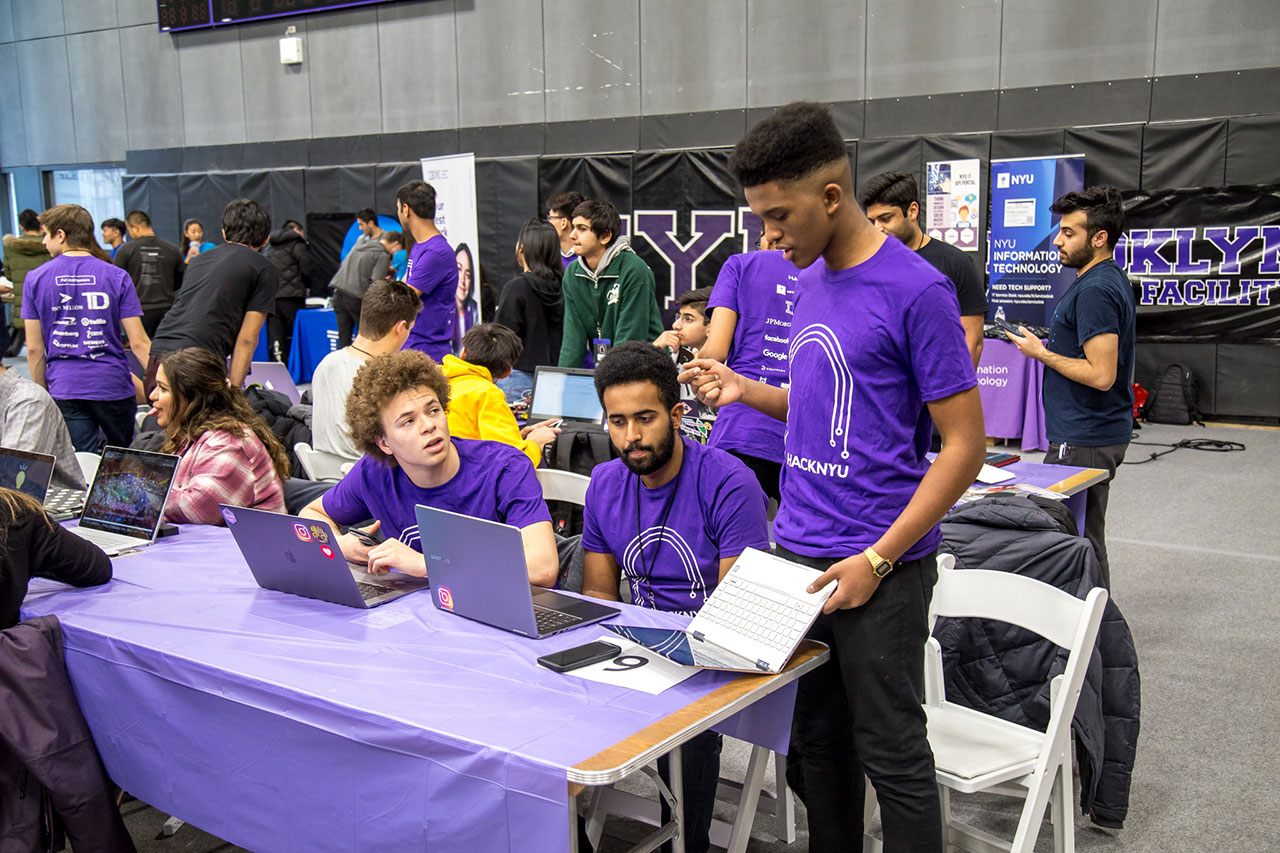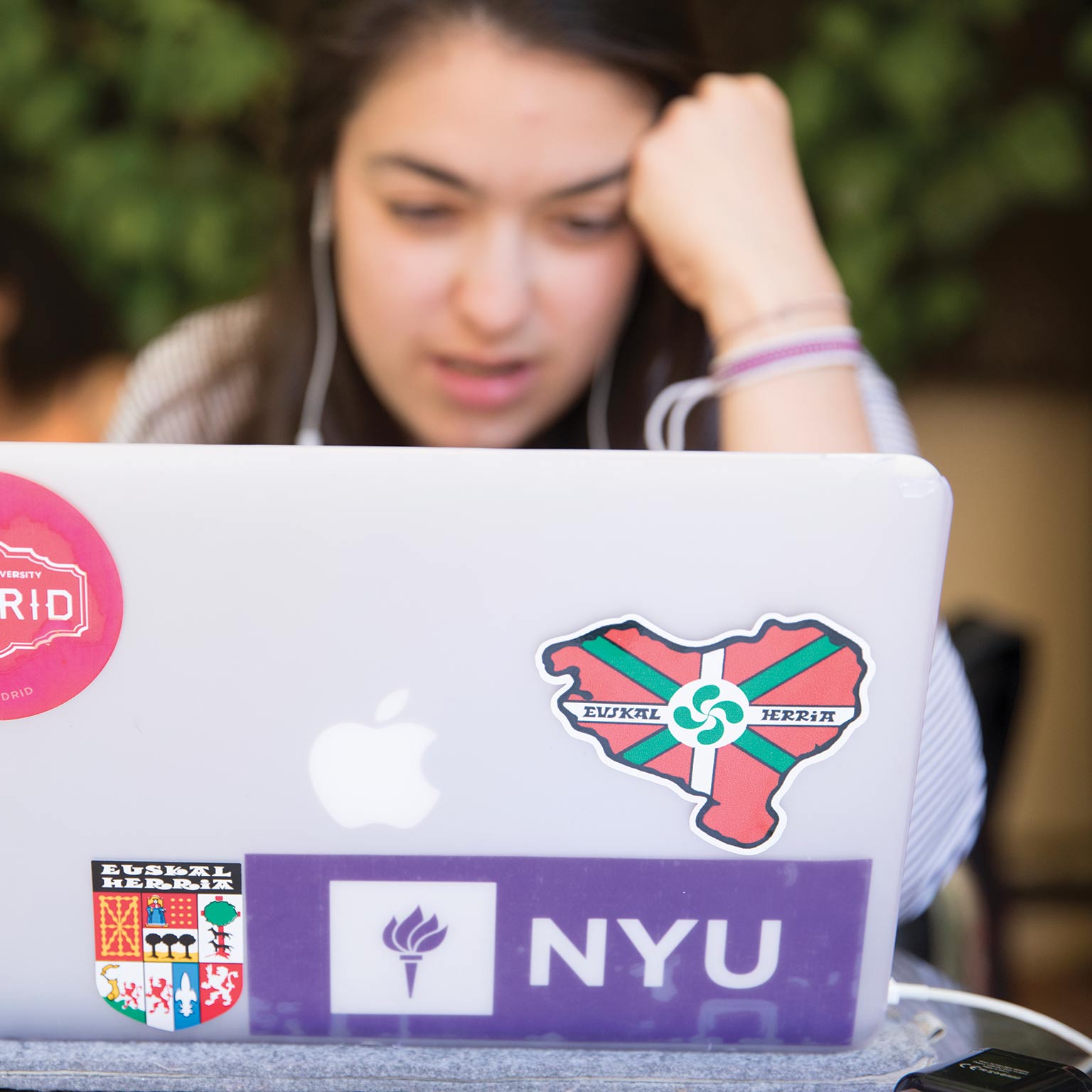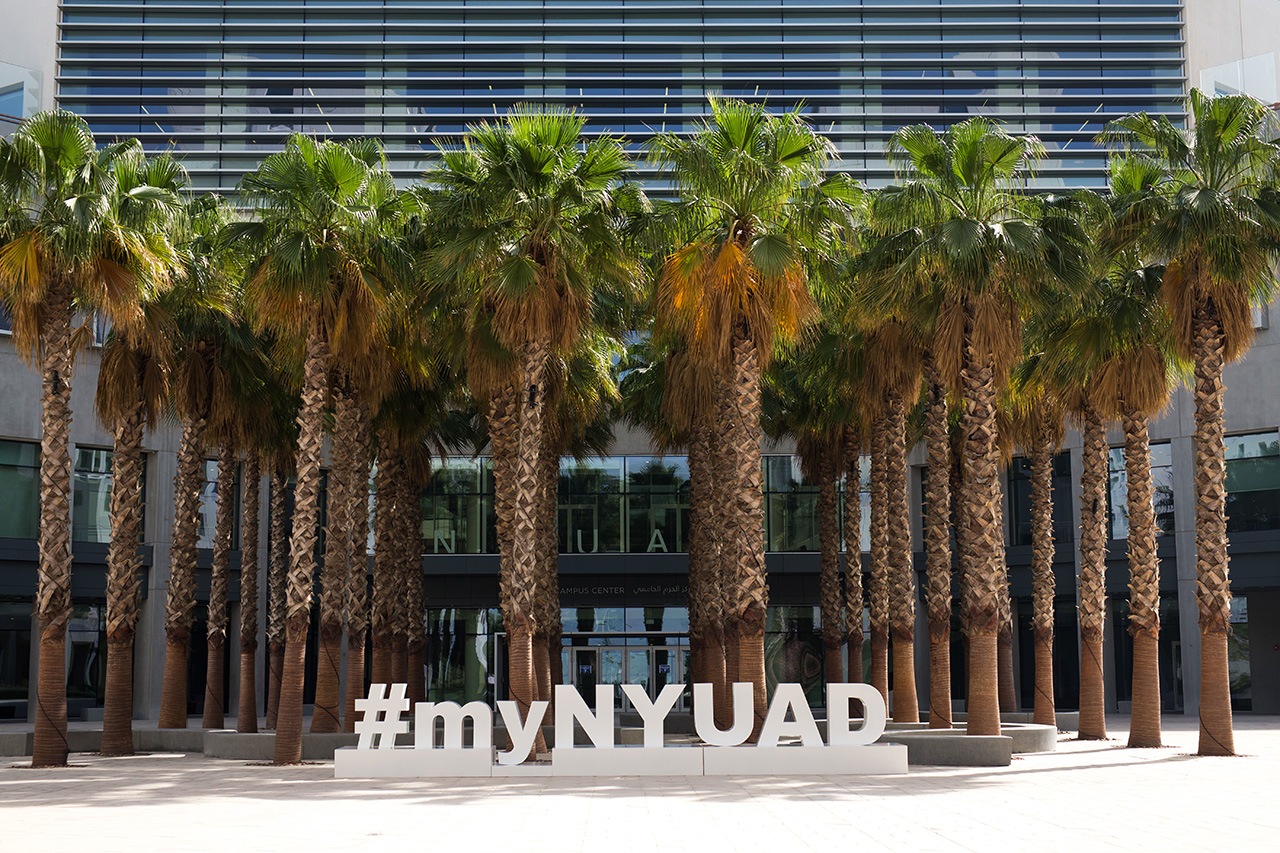Published May 16, 2022
The NYUAD International Hackathon for Social Good Sparks Collaboration
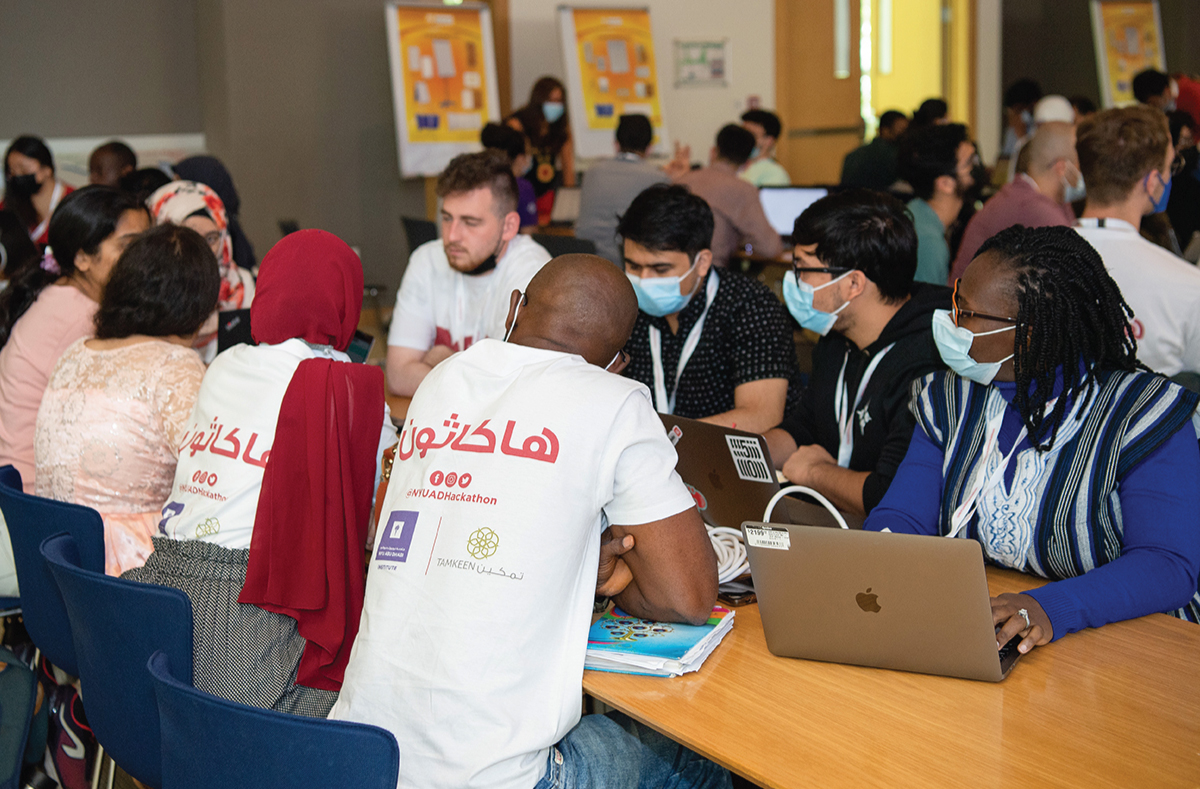
The NYUAD International Hackathon for Social Good in the Arab World seeks to harness the potential of quantum computing to solve problems and improve lives. Held on NYU Abu Dhabi’s Saadiyat Island campus, the annual event brings together talented students, renowned professors, start-up founders, technology professionals, and venture capitalists from around the world.
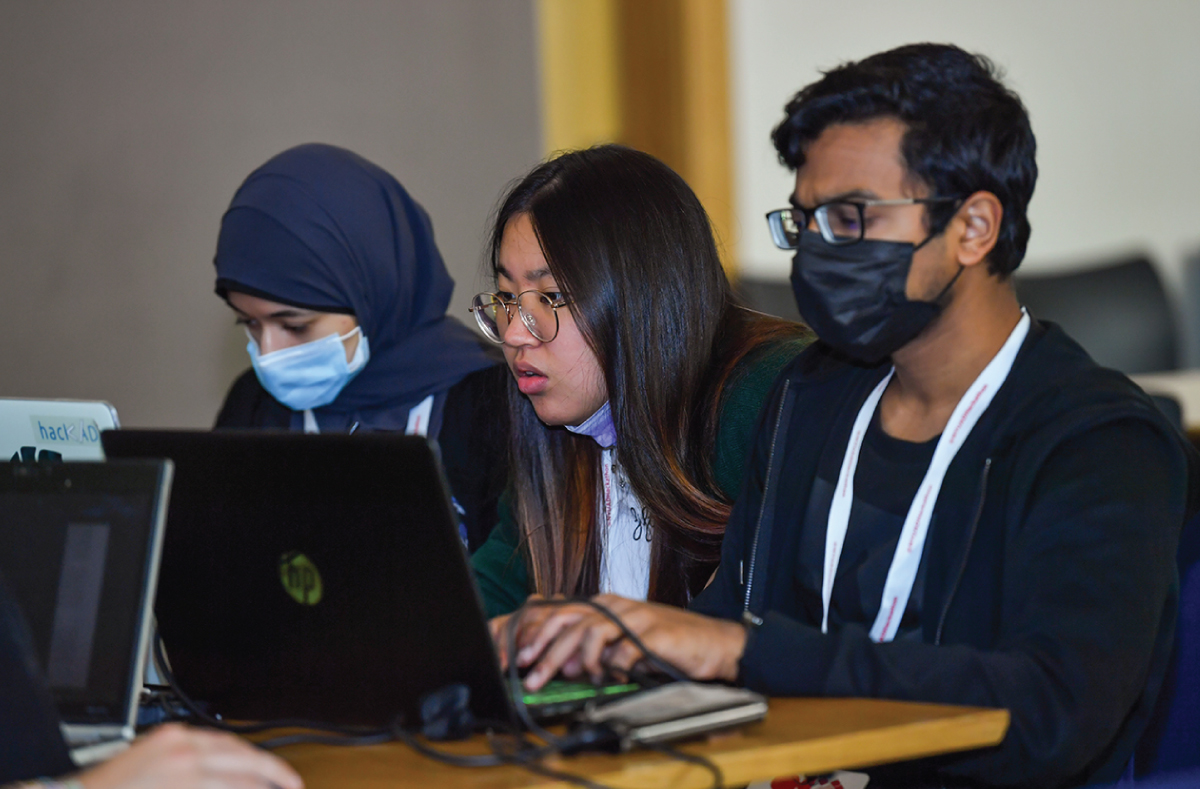
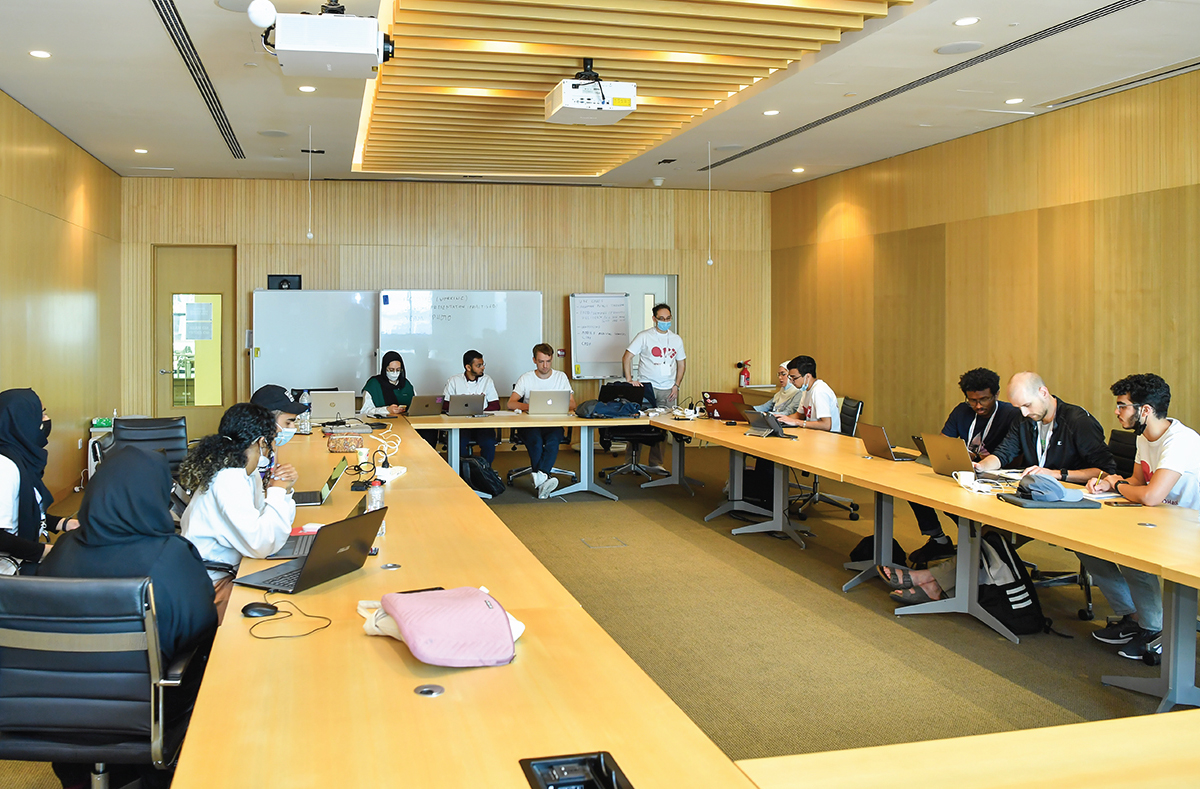
Three Days of International Collaboration
Now in its 10th year, the hackathon welcomes invited students from across NYU’s three degree-granting campuses and beyond. Before the event formally kicks off, participants can attend virtual prep workshops featuring industry and academic leaders. Then, on day one of the hackathon, these workshops transition into lightning talks. During these short presentations, quantum computing professionals and researchers present on topics such as quantum computing in academia, industry trends, and applications. Together, these workshops and talks give participants the technical base they’ll need for the competition ahead.
Next, students work with their assigned team of diverse peers to create a mobile or web application that addresses an issue of their choice. Past teams tackled various problems such as endangered languages, food insecurity, and cybersecurity. “The NYUAD Hackathon is a great chance to meet inspiring people from all over the world,” says Silvey Yu. They are an NYU Shanghai student who is studying abroad at NYU Abu Dhabi. “I met so many amazing people whose academic and industry experiences showed me a whole world of possibilities.” In fact, Silvey was so inspired, they changed their major to Data Science.
The hackathon’s competition portion unfolds over the next two days. This allows all the teams to collaborate, dive deep, and work hard—while still having fun. This year’s festivities included a night of electronic music and hip-hop, provided by Paul D. Miller, at the Louvre Abu Dhabi. Also known as DJ Spooky, Miller was recently an artist-in-residence at the Yale Quantum Institute.
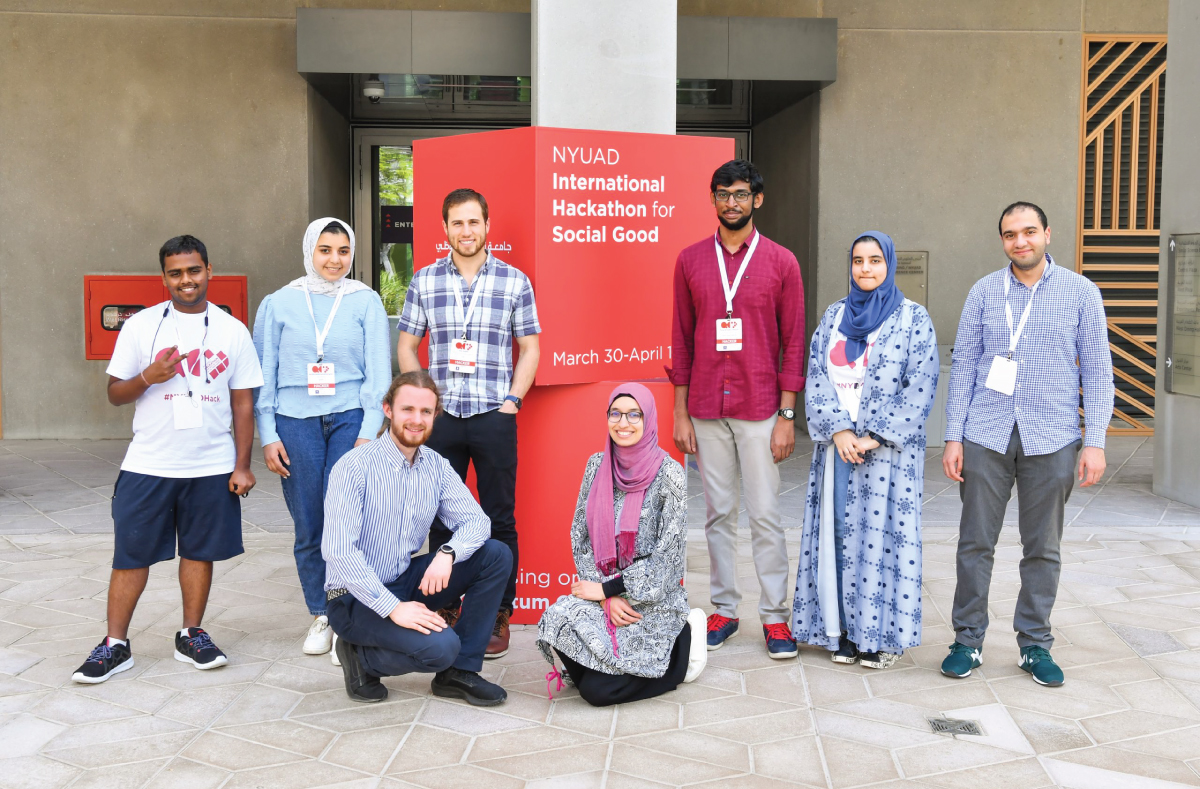
On a Mission to Increase Diversity
When clinical professor of computer science Sana Odeh first started the NYUAD International Hackathon for Social Good in the Arab World in 2011, she wanted to change the culture commonly surrounding such events. “In my research, I discovered that, outside the United States and Europe, in the Arab world, women make up the majority of undergraduate enrollment in computer science and engineering programs,” she explains. To reflect this reality, half the mentors and judges who participate in the NYUAD Hackathon are women.
And while the event is firmly rooted in the Arab world, there is strong international diversity, too. Hackathon participants travel from Ivy League schools across the United States and countries as wide-ranging as Algeria, China, Ghana, Jordan, and Mexico. “When we create the student teams, we put a lot of thought into diversity,” Professor Odeh adds. “We tell them, ‘There will be many challenges, but by working together, you will all succeed.’ And all the teams always do succeed.”
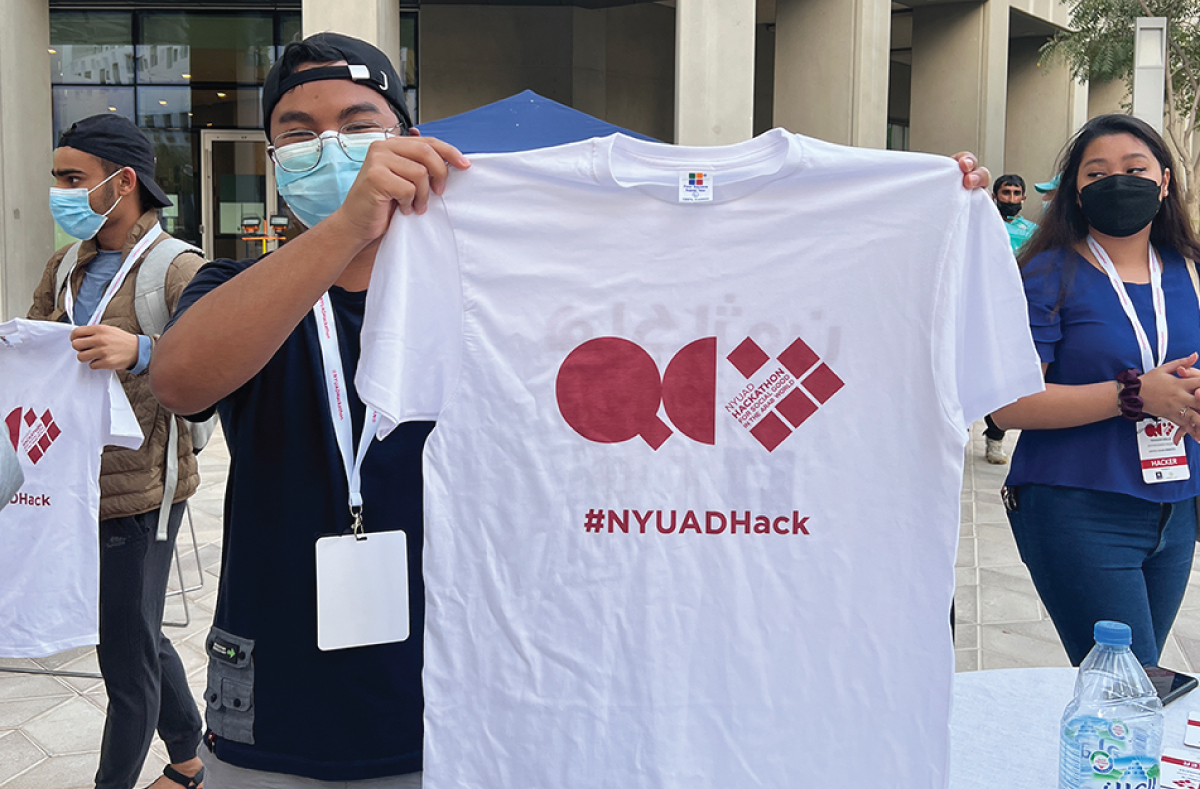
Top Prize Tackles Energy Security and Sustainability
This year, Qudra (قدرة) took home the hackathon’s top prize for using quantum computing to build a package that identifies the most efficient configuration for energy grids. Team member Nurgazy Seidaliev, a senior Computer Science major at NYU Abu Dhabi, explains, “When these grids are optimized, decision-makers can save resources and significantly reduce CO2 emissions. Finding the best production configuration is computationally expensive using classical computers.”
Shantanu Jha, a PhD researcher at the Massachusetts Institute of Technology and one of the team’s mentors, believes Qudra’s strength came from its diversity. “Quantum computing is an inherently interdisciplinary field,” he says. “Our team included nine people from eight countries with expertise ranging from electrical engineering to linguistics. What’s more, it included a range of academic backgrounds. We had various years of undergraduate students, master’s students, and PhD students. This range of experiences enabled us to identify a compelling problem, imagine an inspiring solution, and create the tools to scale toward that solution.”

